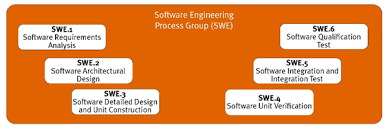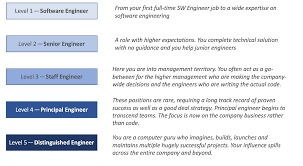The Role of a Software Engineer on Reddit: Enhancing User Experience and Platform Performance
The Role of a Software Engineer on Reddit
Reddit, known as the front page of the internet, is a popular social news aggregation and discussion website where users can share and engage in various topics. Behind the scenes, software engineers play a crucial role in maintaining and enhancing the platform to ensure a seamless user experience.
Responsibilities of a Software Engineer at Reddit
Software engineers at Reddit are responsible for developing and maintaining the website’s features, functionalities, and infrastructure. They collaborate with cross-functional teams to implement new features, improve existing ones, and optimize performance.
Some key responsibilities of software engineers at Reddit include:
- Writing clean, efficient code
- Participating in code reviews
- Testing and debugging software applications
- Collaborating with product managers and designers
- Implementing best practices for scalability and performance
- Maintaining documentation for codebase
Skills Required for Software Engineers on Reddit
To be successful as a software engineer at Reddit, individuals need to possess a diverse set of technical skills. Some common skills required include proficiency in programming languages such as Python, JavaScript, or Java, familiarity with web development frameworks like React or Flask, and experience with database management systems like PostgreSQL or MySQL.
In addition to technical skills, soft skills such as problem-solving abilities, teamwork, communication skills, and adaptability are also essential for software engineers working on a dynamic platform like Reddit.
Career Growth Opportunities for Software Engineers at Reddit
Working as a software engineer at Reddit provides ample opportunities for career growth and professional development. Engineers have the chance to work on high-impact projects that reach millions of users worldwide. Additionally, they can participate in hackathons, attend conferences, and engage in continuous learning to stay updated with the latest technologies.
Overall, being a software engineer at Reddit offers an exciting and challenging environment where individuals can contribute to shaping one of the most influential online communities.
8 Essential Tips for Navigating Reddit as a Software Engineer
- Follow relevant subreddits like r/cscareerquestions and r/learnprogramming for advice and resources.
- Engage in discussions to learn from the experiences and insights of other software engineers.
- Share your own knowledge by answering questions and participating in AMAs (Ask Me Anything).
- Use Reddit’s search function to find past threads on topics you’re interested in.
- Join communities like r/programming or r/softwareengineering to stay updated on industry trends.
- Be respectful when interacting with others, even if you disagree with their opinions.
- Consider creating a separate account dedicated to professional discussions to maintain anonymity.
- Stay cautious about sharing sensitive information or code snippets online.
Follow relevant subreddits like r/cscareerquestions and r/learnprogramming for advice and resources.
By following relevant subreddits such as r/cscareerquestions and r/learnprogramming on Reddit, software engineers can gain valuable advice, resources, and insights to enhance their career development and programming skills. These communities provide a platform for professionals to share experiences, ask questions, and stay updated on industry trends, making it a valuable resource for those looking to excel in the field of software engineering.
Engage in discussions to learn from the experiences and insights of other software engineers.
Engaging in discussions with fellow software engineers on Reddit is a valuable tip for continuous learning and growth in the field. By participating in conversations and sharing experiences, you can gain insights, perspectives, and best practices from others in the industry. This collaborative approach not only broadens your knowledge but also fosters a sense of community and camaraderie among professionals. Embracing discussions allows you to stay updated with the latest trends, troubleshoot common challenges, and enhance your problem-solving skills through the collective wisdom of like-minded individuals.
Share your own knowledge by answering questions and participating in AMAs (Ask Me Anything).
By sharing your own knowledge through answering questions and actively participating in Ask Me Anything (AMAs) sessions on Reddit as a software engineer, you not only contribute to the community but also enhance your expertise and build connections within the industry. Engaging in discussions, sharing insights, and offering advice not only helps others but also allows you to stay informed about current trends, challenges, and innovations in the field. AMAs provide a platform to showcase your expertise, establish credibility, and foster meaningful interactions with fellow professionals and enthusiasts in the software engineering community.
Use Reddit’s search function to find past threads on topics you’re interested in.
Utilizing Reddit’s search function is a valuable tip for software engineers looking to explore past threads on topics of interest. By leveraging this feature, engineers can access a wealth of knowledge and discussions that have taken place within the Reddit community. This allows them to learn from previous conversations, gather insights, and stay informed about the latest trends and developments in their field. Whether seeking advice, troubleshooting solutions, or simply staying updated on relevant industry discussions, using Reddit’s search function can be a powerful tool for software engineers to enhance their learning and professional growth.
Join communities like r/programming or r/softwareengineering to stay updated on industry trends.
To stay updated on industry trends as a software engineer, it is recommended to join communities like r/programming or r/softwareengineering on Reddit. These online forums provide valuable insights, discussions, and resources related to the latest developments in the field of programming and software engineering. Engaging with fellow professionals in these communities can help you stay informed about emerging technologies, best practices, and industry news, enhancing your knowledge and staying ahead in the ever-evolving tech landscape.
Be respectful when interacting with others, even if you disagree with their opinions.
It is essential for software engineers on Reddit to maintain a respectful attitude when engaging with others, regardless of differing opinions. Respectful interactions foster a positive and inclusive community where diverse perspectives are valued. By showing respect towards others, software engineers can cultivate constructive discussions, promote mutual understanding, and contribute to a harmonious environment conducive to collaboration and knowledge sharing.
Consider creating a separate account dedicated to professional discussions to maintain anonymity.
Consider creating a separate account dedicated to professional discussions on Reddit to maintain anonymity. By using a distinct account for professional topics, software engineers can engage in meaningful discussions without revealing personal information or compromising their online identity. This practice allows individuals to freely share insights, seek advice, and participate in industry-related conversations while safeguarding their privacy and maintaining a professional image within the Reddit community.
Stay cautious about sharing sensitive information or code snippets online.
It is crucial for software engineers on Reddit to exercise caution when sharing sensitive information or code snippets online. While the platform is a valuable resource for networking and knowledge-sharing, disclosing proprietary code or confidential data can pose security risks and compromise intellectual property. By being mindful of what they share, engineers can protect their work and maintain the integrity of their projects while still benefiting from the collaborative nature of the community.











